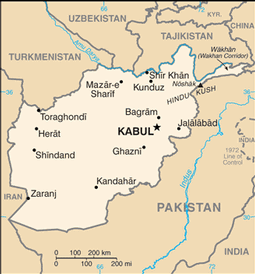
Assadullah was arrested on October 21 in Mazar-e-Sharif for giving a Bible to a man who later reported him to local authorities.
“I am under emotional pressure from being in prison. Add to that the threat of being executed, constant insults and accusations, cursing and being forced by other prisoners and by prison guards to do work for them all because of prejudice against my different beliefs and my different ethnicity,” Assadullah wrote on March 11 from Qasre Shahi Prison in Mazar-e-Sharif.
Months of aggressive international diplomacy that engaged Afghanistan’s government finally lead to Assadullah’s release on bail on March 30. However, Assadullah was commanded by court officials not to leave Mazar-e-Sharif.
“The problem with the bail is that it’s not money, but a house, a shop and persons. The wakil, or municipal representative of sorts, of Shoaib’s area also guaranteed that Shoaib would not flee,” says an International Christian Concern (ICC) source in contact with Assadullah.
On April 14, however, ICC learned that Assadullah received a passport and was able to safely flee the country. “Shoaib’s location in Mazar became known and this was judged to be a high risk, so he has left the country for an indefinite stay abroad. He traveled to Kabul and then [out of the country] with the help of friends,” a friend of Assadullah’s told ICC from Mazar-e-Sharif.
“Shoaib Assadullah’s release ends a frightening ordeal and ICC could not be happier for him and his family. However, while the Afghan government relented on Assadullah’s behalf, there does not appear to be any change in policy, and the crackdown on Christians will continue,” says Aidan Clay, ICC regional manager for the Middle East.
“Currently, several converts may face prison and death sentences after being denied asylum in India and scheduled for deportation back to Afghanistan. We still have a long battle ahead of us before the Afghan government recognizes the religious freedoms of Christians.”












